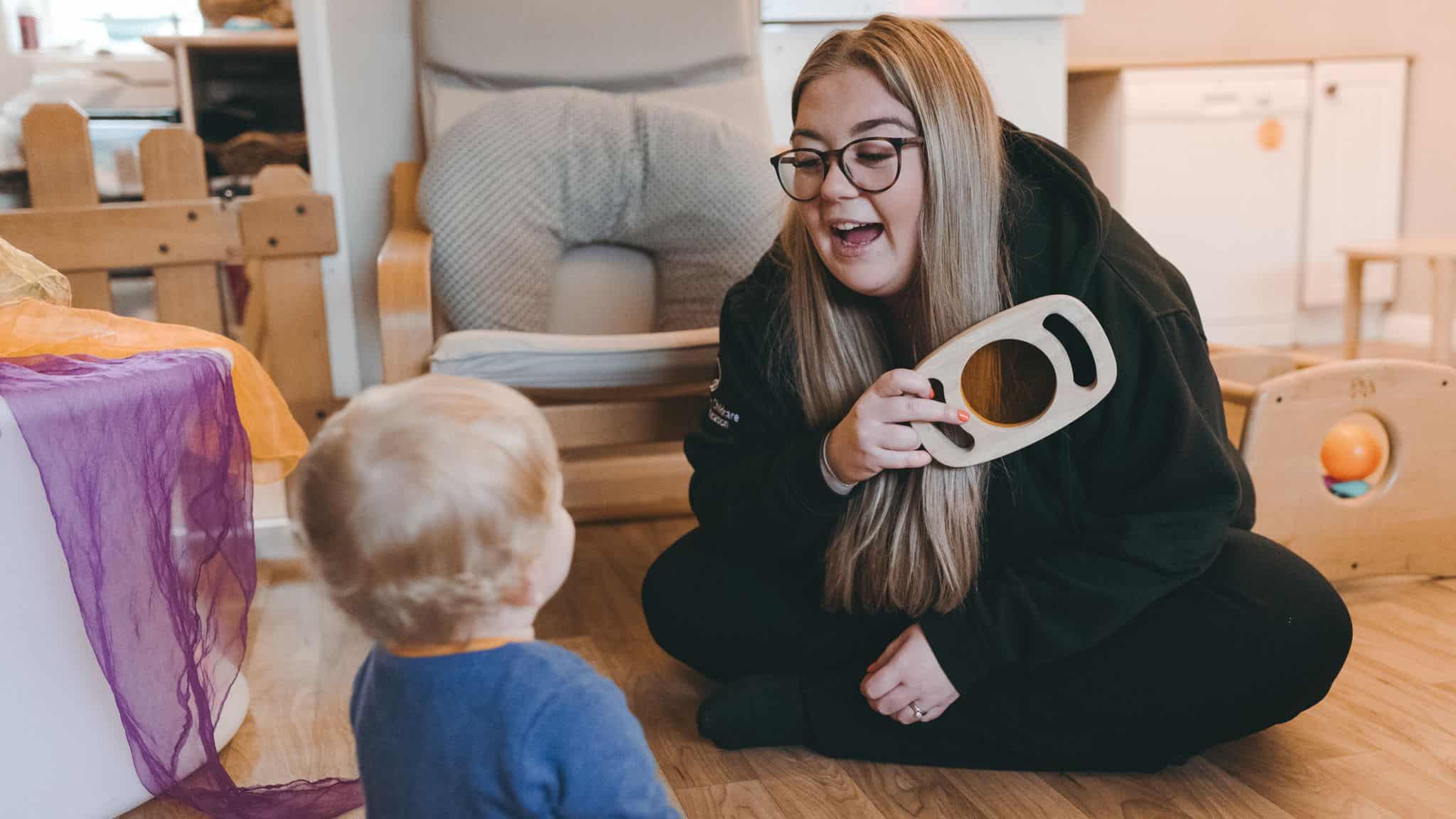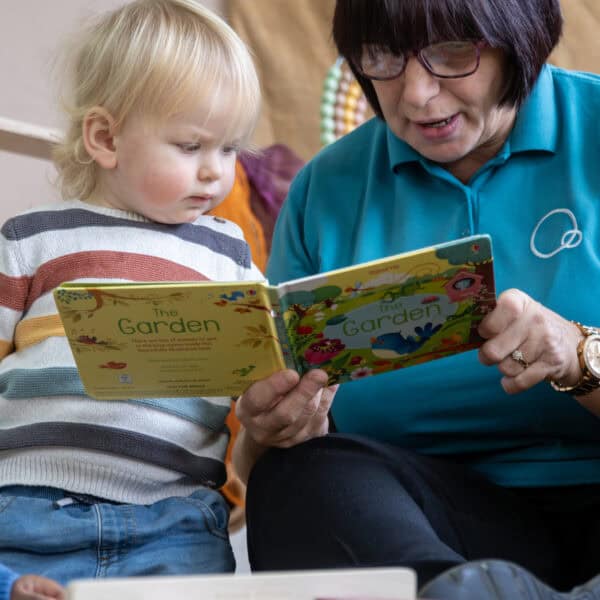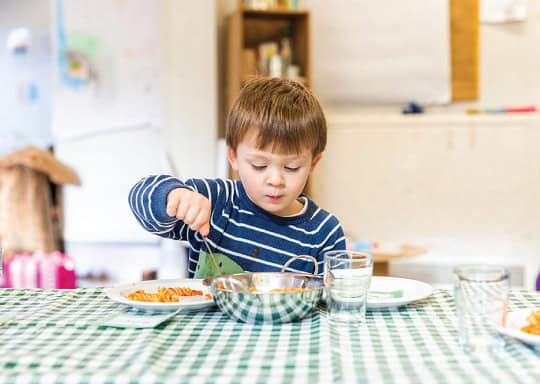This website uses cookies so that we can provide you with the best user experience possible. Cookie information is stored in your browser and performs functions such as recognising you when you return to our website and helping our team to understand which sections of the website you find most interesting and useful.
Published on April 8, 2025
Playing Well With Others: How We Nurture Social Skills at Thrive Childcare
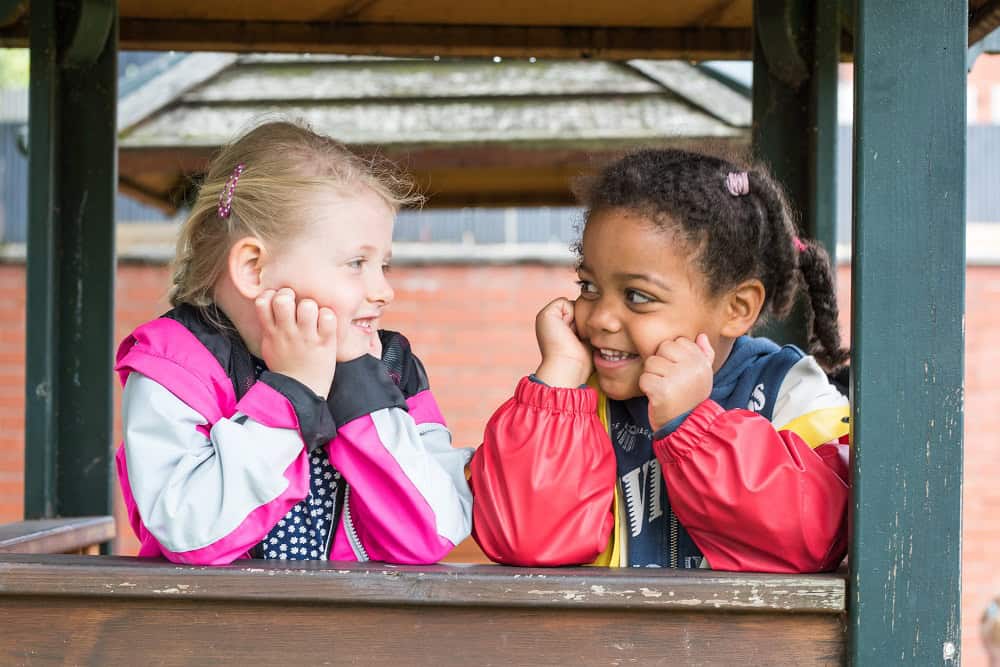
Playing Well With Others: How We Nurture Social Skills at Thrive Childcare
Watching your child learn to play alongside others is a big step. You see them making connections, starting to understand teamwork, maybe even sharing a toy without prompting. It’s exciting. But let’s be honest, it’s not always smooth sailing. Learning to get along, take turns, and understand feelings takes time and practice. At Thrive Childcare, helping your child develop these vital social skills is a core part of what we do every day. It’s woven into our playtime, our routines, and how our team interacts with every child.
Think about it. Nursery is often the first place children spend lots of time with a large group of peers. It’s a whole new world compared to being mostly at home. Suddenly, they need to navigate group dynamics, communicate their needs clearly, and yes, figure out the tricky business of sharing. These skills don’t just appear overnight. They are learned, practiced, and gently guided.
Understanding the Journey: Little Steps to Big Friendships
Young children, especially toddlers and preschoolers, are naturally focused on their own world. This is completely normal. Learning to see things from another person’s perspective is a developmental process. Sharing, for instance, can feel like losing something precious. Empathy, the ability to understand how someone else feels, blossoms gradually.
So, when your two year old grabs a toy back or your three year old struggles to wait their turn, it’s not defiance. It’s part of learning. Our job at Thrive Childcare isn’t to force behaviours they aren’t ready for. Instead, we create a supportive space where they can learn these skills naturally, with understanding and encouragement. We know that patience and positive guidance work far better than pressure. We focus on progress, not perfection.
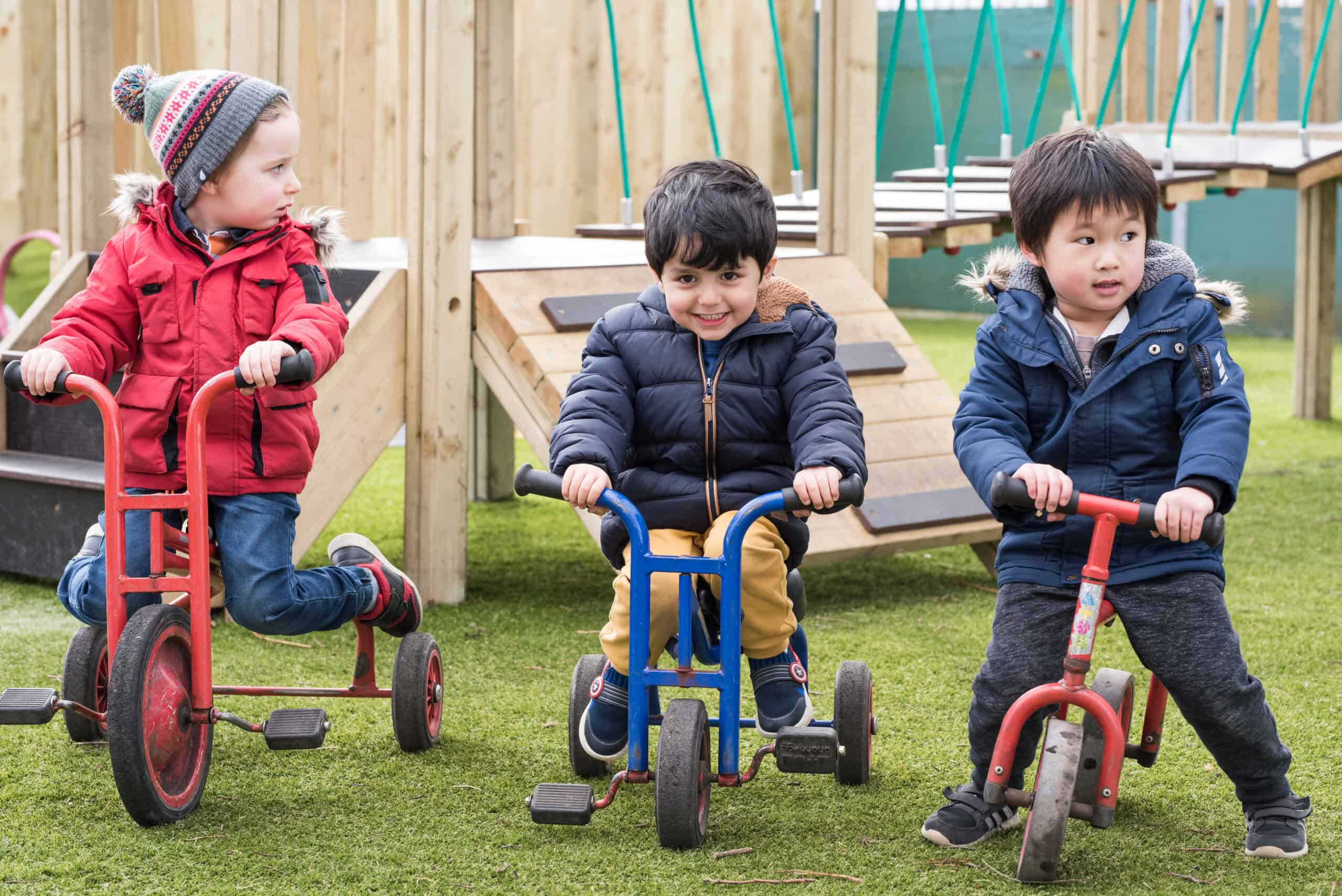
Creating the Right Environment: Where Social Skills Blossom
How do we actually help children learn to socialise at Thrive Childcare? It starts with the environment itself.
We design our spaces to encourage interaction. You’ll see areas for collaborative play, like building blocks or a shared art easel. We arrange seating at snack and meal times to promote conversation. Our routines include group activities like circle time, singing songs together, and playing group games. These moments provide structured opportunities for children to practice listening, waiting their turn, and participating as part of a group.
Our educators are key. They are skilled observers, tuning into the social dynamics of the children. They model positive social behaviour constantly. You’ll hear them using polite language, demonstrating how to join a game respectfully, and showing how to solve small disagreements calmly. They actively facilitate interactions, helping children connect with each other. Sometimes this means suggesting a way to play together. Other times it involves helping a child understand why their friend might be upset.
Free play is also crucial. This is where children get to test out their social skills more independently. They choose who to play with and what to do. During this time, our team steps back a little, observing and intervening gently only when needed. Perhaps they help a child who is finding it hard to join in, or guide children through a minor disagreement about a toy. This balance of structured activities and free exploration allows children to learn in different ways.
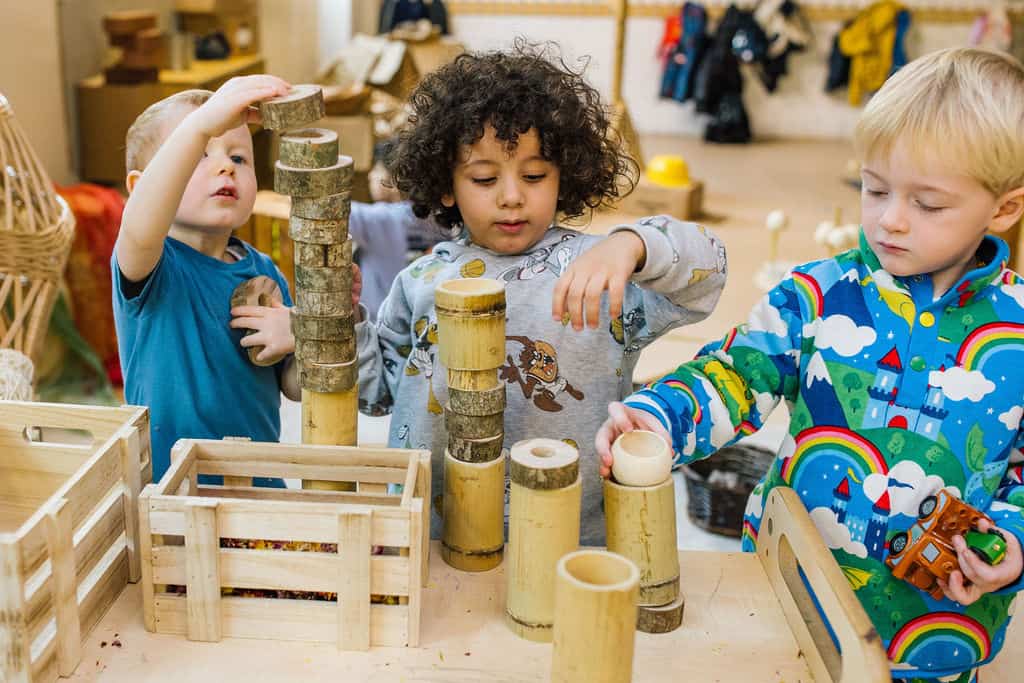
Tackling the Sharing Challenge: More Than Just Giving Up a Toy
Ah, sharing. It’s probably one of the most talked about social skills in early childhood. You’ve likely seen the struggles firsthand. At Thrive Childcare, we approach sharing thoughtfully. We understand that simply telling a child “You need to share” isn’t very effective and doesn’t teach the underlying skills.
Instead, we focus on teaching concepts like turn taking and waiting. This is more concrete and easier for young children to grasp. We might use a sand timer to show how long someone has with a popular toy before it’s the next child’s turn. This makes waiting visual and predictable. Sometimes, having duplicates of favourite items helps reduce conflict, especially for younger toddlers.
We also teach children the language they need. We help them learn to ask, “Can I have a turn when you’re finished?” or to say, “You can have it next.” This empowers them to negotiate and communicate their needs respectfully. Our educators model this language constantly.
Crucially, we connect sharing and turn taking to feelings. We help children understand how waiting patiently makes their friend feel happy, or how grabbing a toy might make someone sad. “Look, Sarah is smiling because you waited for your turn. That was kind.” This builds empathy, which is the foundation for genuine sharing and kindness. We praise effort and positive interactions enthusiastically. Positive reinforcement works wonders. We celebrate small successes, like offering a toy or waiting patiently.
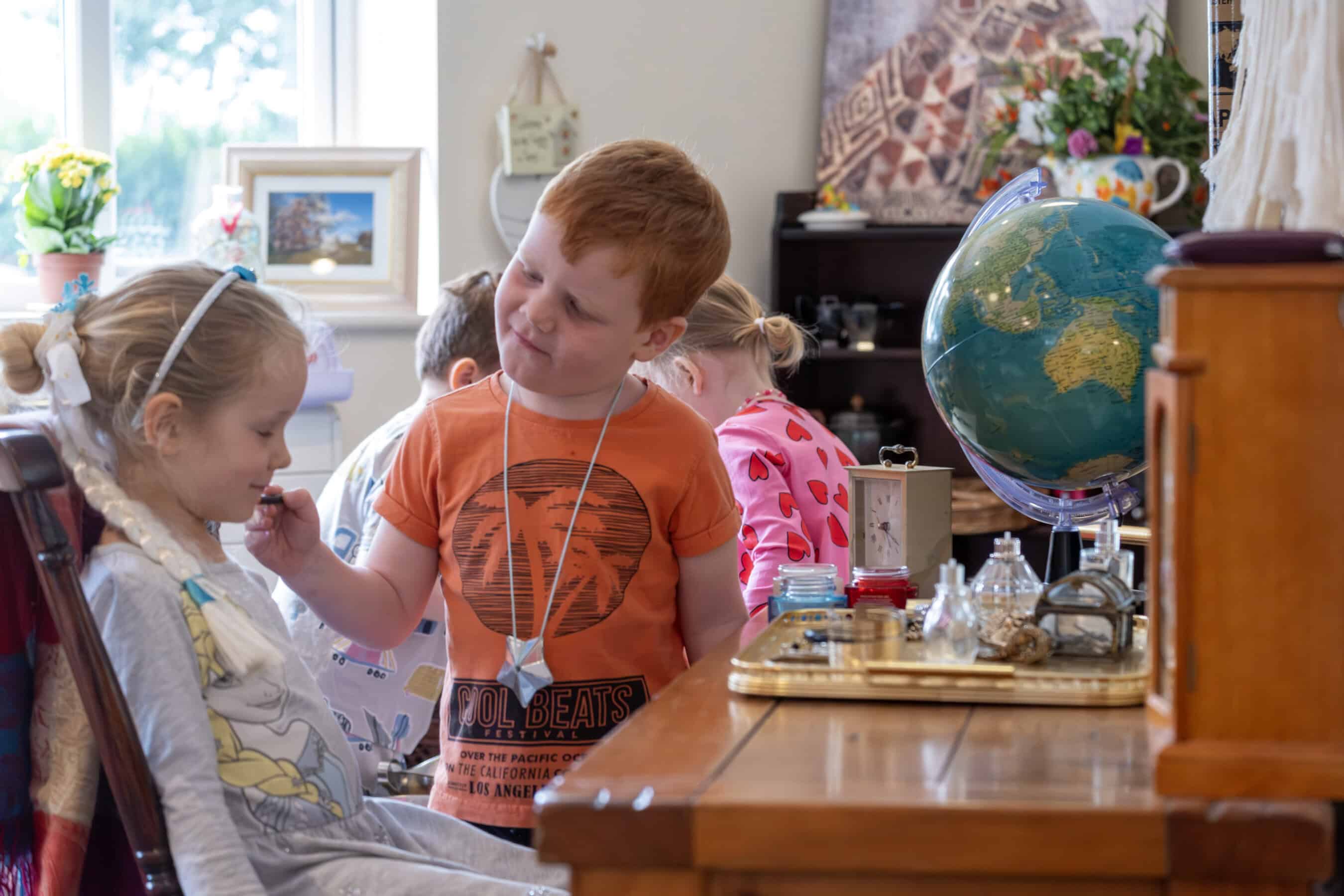
Beyond Sharing: Building a Toolkit of Social Skills
Social development is much broader than just sharing. At Thrive Childcare, we help children build a whole toolkit of skills they need to navigate social situations successfully. These include:
- Communication: Learning to listen to others, express their own needs and feelings clearly using words, and understanding non verbal cues.
- Cooperation: Working together towards a common goal, like building a big tower or tidying up toys. We encourage teamwork in many activities.
- Empathy: Starting to recognise and understand the feelings of others. We talk about emotions openly and help children label their own feelings and those they see in others.
- Conflict Resolution: Guiding children through simple disagreements, helping them identify the problem and think of fair solutions together. This might involve taking turns, finding a similar toy, or asking an adult for help.
- Following Routines and Group Rules: Understanding expectations for behaviour within the group helps children feel secure and learn self regulation.
- Making Friends: Learning how to approach others, join in play, be kind, and maintain friendships.
These skills are interconnected and develop over time. Our role is to provide consistent opportunities and gentle guidance for children to practice them every day.
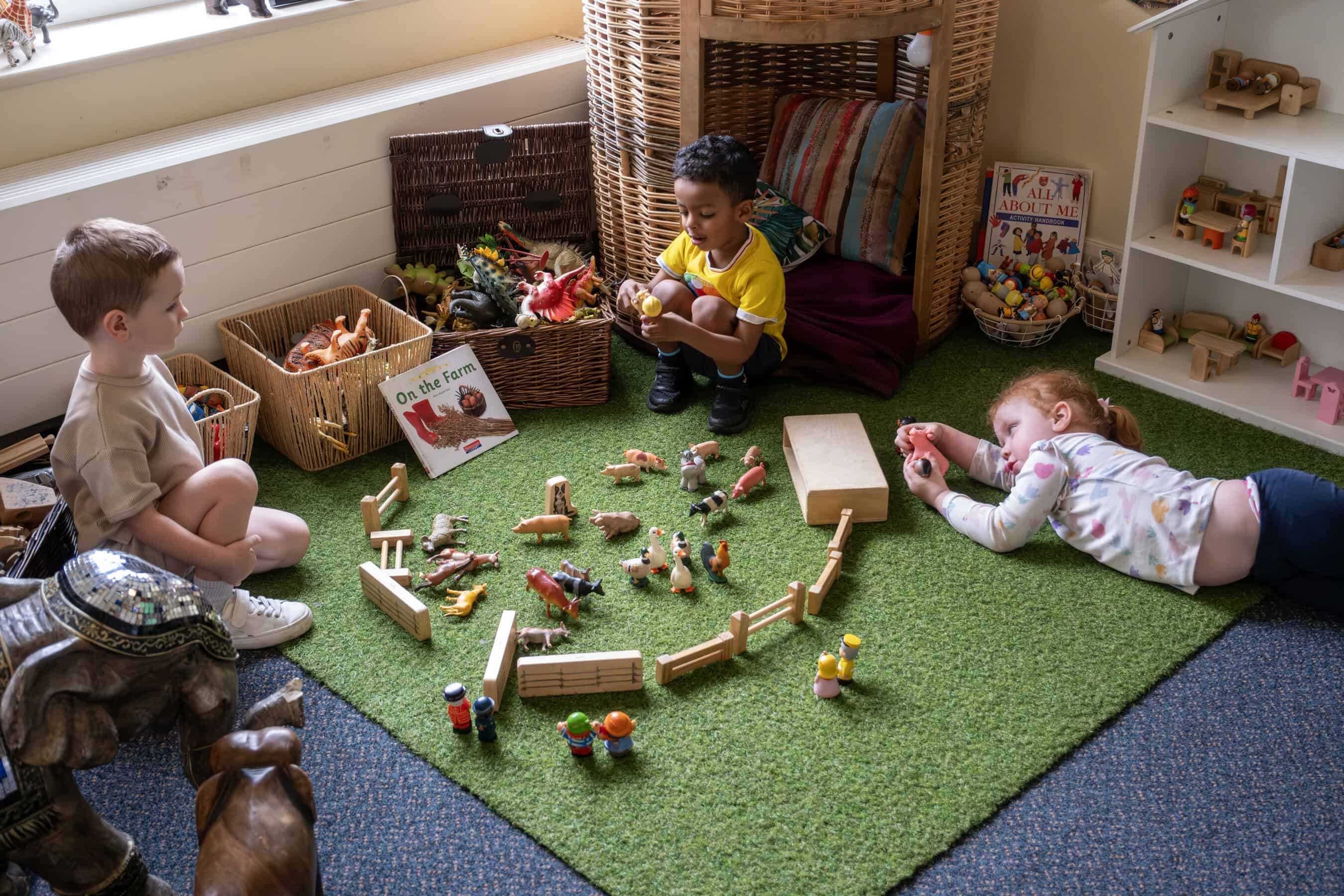
Working Together: Nursery and Home
You are your child’s first and most important teacher. The social skills they practice at nursery are reinforced by what they experience at home. We believe a strong partnership between nursery and parents helps children thrive socially.
We keep you informed about your child’s social development and the strategies we are using. We encourage you to talk to us if you have questions or concerns. You can support your child at home in simple ways. Arrange playdates. Talk about feelings together. Read stories that involve friendship and cooperation. Model turn-taking and polite language yourself. When challenges arise, like difficulty sharing with a sibling, approach it with patience, similar to how we do at nursery. Focus on teaching the skill rather than just expecting the behaviour. Consistency between home and nursery makes learning much easier for your child.

Ready for the Next Step
Learning to navigate the social world is a huge part of growing up. The skills your child develops at Thrive Childcare – communicating, cooperating, empathising, sharing, problem solving – are not just for nursery. They are foundational skills for success in school and for building positive relationships throughout life.
Our team is dedicated to nurturing your child’s social and emotional development in a warm, realistic, and supportive environment. We celebrate their efforts and guide them through the challenges. We provide the tools and opportunities they need to learn how to play well with others and build the foundations for strong, happy friendships. We are here to support both you and your child on this important journey.

